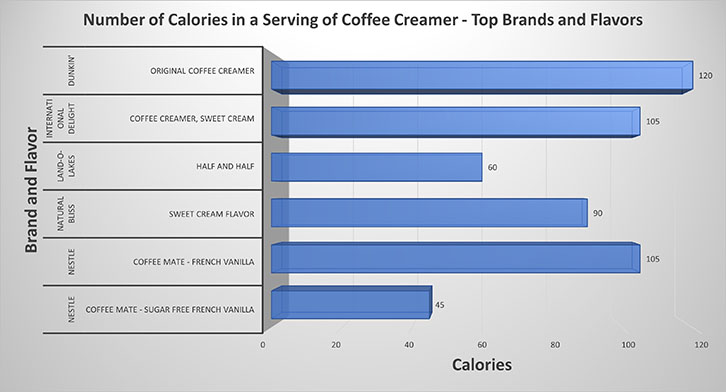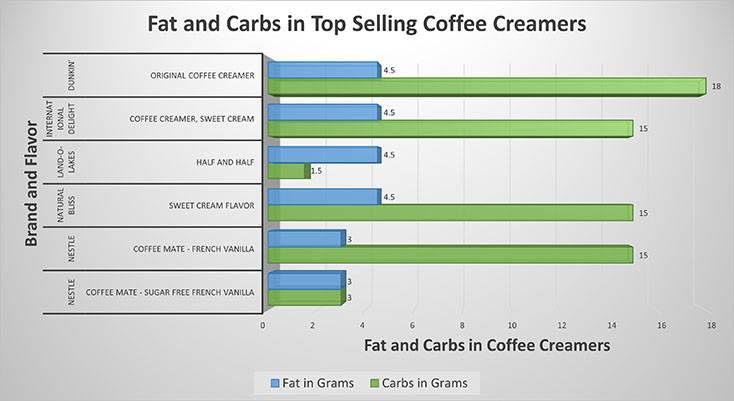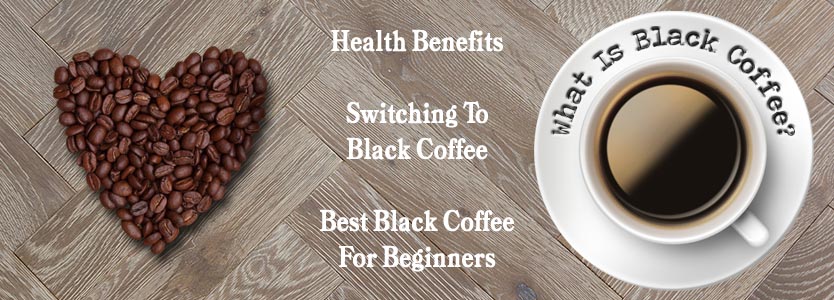At the bottom of this article I talk about what made me switch to drinking black coffee. And I also quickly began to like it.
There are many reasons to start eliminating creamers, sugars, and other additives from your coffee. Black coffee has a number of health benefits for you, but much of that is eliminated once you factor in all the additives. And it’s not great for your waist line, either.

The Question You Ask – Why Don’t I Like Coffee?
Not everyone enjoys coffee, and that’s perfectly normal. Taste preferences vary widely among individuals, and coffee can be an acquired taste due to its unique flavor profile and caffeine content. If you’re asking yourself the question “Why don’t I like coffee”, here are several reasons why you might not like it:
- Taste sensitivity: Coffee has a distinct and sometimes bitter taste that may not appeal to everyone. Some people are more sensitive to bitter flavors, making coffee less enjoyable for them.
- Sensitivity to caffeine: Coffee contains caffeine, a stimulant that can affect people differently. If you’re sensitive to caffeine or have adverse reactions like jitters or increased heart rate, it can contribute to a dislike of coffee.
- Flavor preferences: Taste preferences are highly subjective, and not everyone appreciates the flavor of coffee. Some people prefer sweeter or milder beverages, while others might find the taste too strong or overpowering.
- Previous experiences: Negative experiences with coffee, such as trying a poorly made or low-quality cup, can create a lasting impression and impact your overall perception and enjoyment of coffee.
- Alternative options: Fortunately, there are numerous other beverage options available that can provide a morning boost or a warm drink without the taste of coffee. You may find alternatives like tea, herbal infusions, hot chocolate, or fruit juices more appealing.
Remember, personal taste preferences are unique to each individual, and there’s no right or wrong when it comes to liking or disliking coffee. It’s perfectly okay to enjoy other beverages that better suit your preferences.
What Is Black Coffee?
Black coffee is simply coffee served without cream, sugar, or any other additives that would effect the taste. Most things that we add to coffee to affect the flavor also affect the color of the coffee. The color usually turns to a beige or brown color. When coffee is brewed using any brew method the color will be black. So next time you go to a restaurant or café and you hear someone ask for a black coffee they’re asking for no additional flavoring in their coffee.
Black coffee should not be confused with the term “strong coffee” because the strength of coffee has a different meaning. Typically, coffee strength refers to the amount of bitterness or caffeine that the coffee has.
The bitterness is dependent on how the bean was roasted and if it’s a dark roast or a light roast. The caffeine content is dependent on a couple of factors. One would be how much water you’re using to the number of beans, and another would be how the beans were roasted. It may come as a surprise that a light roast breakfast blend coffee has more caffeine than a dark roast. Even the age of the bean can affect the caffeine content. Lastly, the speed of the brewing process can affect the caffeine content. Within the first minute of brewing 95% of the caffeine is released from the coffee bean.
Where black coffee has nothing added to it, the coffee strength is usually refers to how much caffeine and flavor is extracted from the coffee bean as water passes through. So black coffee can be strong or weak depending on a number of variables such as the type of beans used and the brewing method.
Health Benefits Of Black Coffee Without Sugar Or Cream
Now that you know what black coffee is let’s talk about some of the health benefits of black coffee without sugar or cream. There are many! We discussed in an a previous article how many calories are in a cup of coffee. It’s important to know that a cup of black coffee only contains about 2 calories.

The health benefits of black coffee without sugar are cream is could also be looked at as addition by subtraction. Coffee gets a bad reputation because of the additives. Sugar and cream, over time, are a contributing factor to health problems associated with coffee. But we’re here to talk about the health benefits of black coffee without sugar or cream. So now let’s talk about some of those benefits.
- Recent studies have shown considerable evidence that coffee may help protect you against Alzheimer’s disease.
- According to a Korean study coffee drinkers are less likely to show the beginning signs of heart disease. More recently, a Brazilian study suggests that coffee drinkers develop less calcification in their coronary arteries.
- A University of Southern California study explains that moderate consumption of coffee can reduce the odds of developing colorectal cancer by 26%.
- Another Brazilian study suggests that black coffee will help fight cavities. Black coffee kills bacteria on your teeth that leads to tooth decay.
- If you workout than it might be good for you to know that two cups of coffee can reduce post-workout pain by 48%. This is according to the Journal of Pain. Check out the hows and whys coffee helps with your fitness program because it may change your workout habits.
These are just five major benefits, and there are many more benefits to coffee that could be listed. This includes lowering the risks of diabetes, cancer, suicide and depression, and Parkinson’s disease.
How To Start Drinking Black Coffee

Quit Cream And Sugar Cold Turkey
There are two good ways to transition from drinking black coffee. One is to quit cream and sugar cold turkey like I did and just start drinking black coffee. This can be difficult for a lot of people because each coffee has its own unique taste and some can taste bitter. To quit cold turkey is going to be more about mindset and willpower. But also, continue reading the next section below because the coffee you choose will also affect how easy your transition will be. So see below for the best black coffee for beginners.
If you’re not able to quit cream and sugar cold turkey than your best bet is to ease the transition into black coffee. This is probably the best thing for you to try because if you try and quit cold turkey and decide you don’t like the taste you may never try again. Easing into black coffee will help with the transition and help you to acquire the taste for black coffee. So follow the steps below to switch to drinking black coffee.
Ease The Transition To Black Coffee
- Taste the coffee black every time before you add cream or sugar. Don’t just sip it. Actually taste it. This will help you taste the flavors and give you a mindset that you are transitioning to drink black coffee. There’s even a chance that one sip begins to turn into two, and increases as you begin to enjoy the taste.
- Figure out how much cream, sugar, or other additive you’re putting in your coffee now. This will give you a baseline so you can figure out how much to cut back as you transition to drinking black coffee. If you don’t actually measure how much you put in and just pour cream and sugar in your coffee than you should count to estimate how much you put in. Count using “Mississippi” after the number for one week to get an average. Once you get your average than count that same poured average into a measuring cup or spoon to see how much you’re adding.
- Now that we have a baseline, let’s reduce reduce your cream and sugar in your coffee by 25%. Do that for one week, and than decrease the amount by another 25%. Keep reducing each week by 25% until you get to drinking black coffee.
If you find yourself not liking the taste as you reduce the cream and sugar than reduce the percentage of how much you’re cutting back. You could also increase the time if you’re taking longer to adjust to the new measurements. But stick with it. you’ll get there!
The Coffee Beans Matter: Best Black Coffee For Beginners
Now let’s look at the best black coffee for beginners. There’s certain things that you should look for or avoid in the coffee. Finding the right coffee could have a big impact on whether you’ll stick with black coffee.
Things To Look For
- Whole Coffee Beans: You want to look for whole coffee beans and grind them on your own. If you don’t have a grinder for your coffee pot you should consider that purchase. Grinding your own coffee beans will ensure that you get fresh cup of coffee that still has a nice flavor. In fact, people often add flavors to disguise poor tasting coffee that’s old, cheap, poorly-roasted, or flavorless. So a good and fresh coffee bean absolutely matters. Don’t grind the beans until your ready to brew.
- Pick The Right Coffee: A smooth tasting coffee will usually be easier on your taste buds. I’ve always liked Mexican Chiapas because the coffee is smooth and flavorful with a little bit of sweetness. But do some research on coffee beans. Most coffees list their region, flavor profile, and other attributes to aid your decision. Pick a coffee that matches your taste buds. A lighter or some medium roasts tend to be the best black coffee for beginners.
Things To Avoid
- Dark Roasts: You’ll want to avoid dark roasted coffee beans. The flavor profiles tend to be very bold and bitter. Until you know what you’re getting into this wouldn’t be the best black coffee for beginners.
- The Best Black Coffee Is Homemade: If you’re just starting to drink coffee, or transitioning to black coffee, don’t go to the major chains. The beans tend to be lower quality because they’re in business to make money. Knowing that almost everyone orders a flavored drink there’s no pressure to purchase high quality beans. Also, the machines aren’t cleaned often enough to keep the flavor profiles fresh. At times, you might even notice that the coffee seems to taste burnt.
What Made Me Switch to Black Coffee
When I was starting out in my career the vice president of my company would joke with me all the time because I was the person who seemed to pour sugar into my coffee for a whole minute and add a gallon of milk. OK – that might be a bit of an exaggeration. But I did pour a lot of cream and sugar into my coffee.
We stopped one day before a meeting for a coffee at McDonald’s. Of course, he jokingly said something to me about the milk and sugar I added. But then he seriously said to me “Have you ever thought about how much crap you’re adding to your body if you’re drinking two cups of coffee a day?” He was older and going through some heart problems at the time, but a light bulb turned on in my head and I realized that he was right.
After that day I decided I would try and quit cream and sugar in my coffee. I’m the exception, but it actually worked for me and I quickly began to like black coffee. But more on that later on. So now to the first question. What is black coffee?
Final Thoughts On Black Coffee
We answered the question of “what is black coffee?”, and looked at its health benefits. We also explored the best black coffee for beginners, and transitioning your taste buds to black coffee. Hopefully, we gave you enough information to start your journey into a new world of drinking black coffee.
Some say that black coffee is an acquired taste. But it doesn’t have to be that way if you use fresh beans that are high quality, and match them to the flavor profiles you like.


